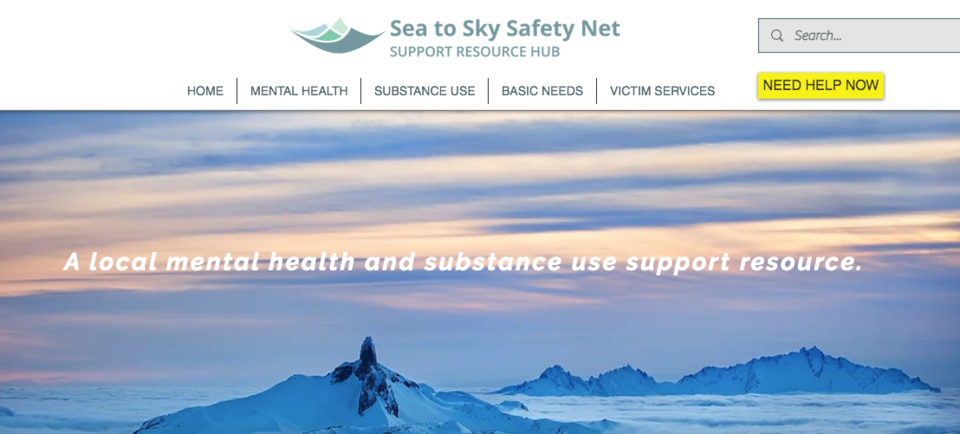When COVID-19 first hit B.C. and Whistler Blackcomb closed in late March 2020, it led to record numbers of Whistlerites seeking help at the Whistler Community Services Society (WCSS).
In April 2020, more WCSS clients identified as being in crisis than ever before.
With the forced closure of Whistler Blackcomb (WB) on March 29, Whistlerites may be feeling a bit of déjà vu this week, but the WCSS is once again ready to help, said executive director Jackie Dickinson.
“History repeats itself—no truer phrase than right now—and so what did we learn last spring that we can implement to support the wellbeing of our community again this year?” Dickinson asked.
“I think it’s providing them with as many resources [as possible], and reminding them … of the protective layers within our community that are here to support them, because that’s going to be really essential.”
To that end, a new website spearheaded by the Whistler Blackcomb Foundation (WBF) using funds from the Katz Amsterdam Foundation aims to provide corridor residents with a one-stop-shop for all manners of support.
The site, seatoskysafetynet.com, pulls together data and resources from a large cross-section of local stakeholders, presenting it in one place and in an easy-to-use interface.
A survey conducted this summer revealed the different barriers people face when looking for help, said Mei Madden, executive director of the WBF.
Just over half of respondents included finances as a personal roadblock, along with other pressures and anxieties, long wait times, or simply not knowing where to go.
“So we hope that the Sea to Sky Safety Net can help bridge that gap,” Madden said. “Basically our website is drawing people to online care options that are available … they could find these resources themselves, but we’ve pulled it all together in one location.”
The site includes low-cost or no-cost options for those struggling financially, Madden said, adding that people can choose to access resources anonymously, or even connect with someone in a different community to further protect their privacy.
“And although we know there is capacity issues—we definitely don’t have enough clinicians in the Sea to Sky corridor—people who aren’t in acute crisis that need that extra help can find these resources that can help them immediately, and hopefully prevent them from getting to that critical point,” Madden said.
The launch of the site caps a successful month for the WBF, which also hosted a reimagined version of the Telus Winter Classic on March 13.
Hosted by Mercedes Nicoll and Robjn Taylor, and with the help of an eccentric cast of Whistlerites near and far, the Rise Up Live Telethon was a resounding success, netting the WBF $330,000 to help charities in the corridor.
The grand total was boosted by a $100,000 matching grant courtesy of Vail Resorts’ EpicPromise.
Madden said $65,000 of the final total came from Whistlerites calling in during the event.
“I’m absolutely thrilled by the $330,000,” she said, likening the community support to the WCSS’ “Together” campaign.
“It just really hits the nail on the head, because that word just sums up the heart and soul of our community … the next day as I was going through all of the donations, I was so overwhelmed by our friends, our family, our community members, everyone being so generous.”
If you missed the telethon, you can watch it in its entirety (and donate to the WBF) at whistlerblackcombfoundation.com.




